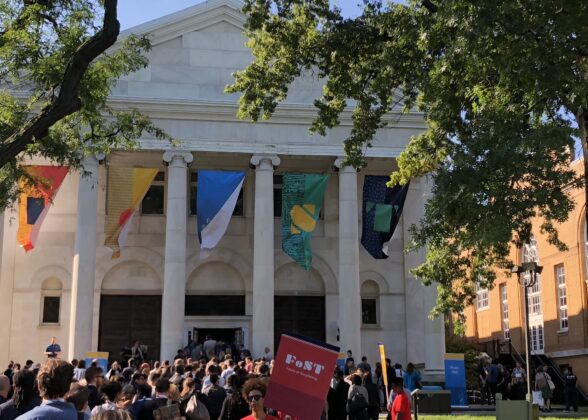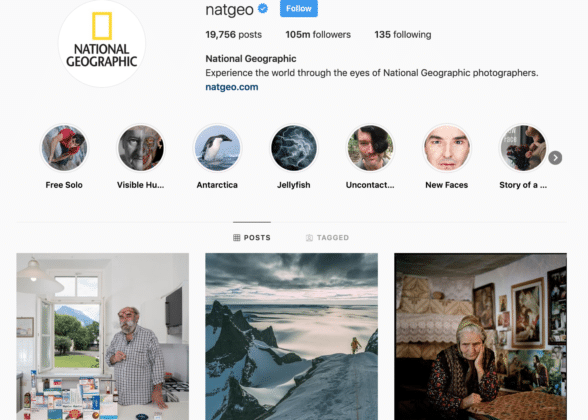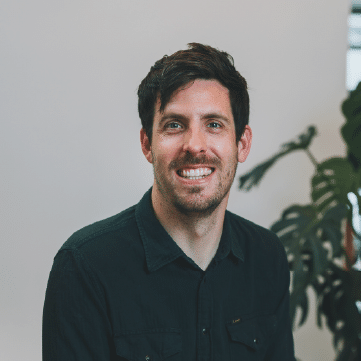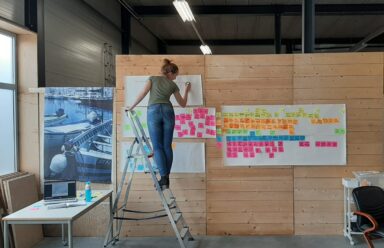
The Future of Storytelling: the magic sauce that makes everything better?
Last year I was with Mark Geljon on the Future of Storytelling in New York City. A fantastic conference in an amazing location. Upon arrival, I was very curious if this congress would help me to change my picture about storytelling.

I have a love-hate relationship with storytelling. I am a big fan of the possibilities it offers and the impact it has on people. However, I also notice that storytelling is presented as a ready-made product: a kind of new magic sauce that makes everything better.
That hype is too short-sighted. I don’t think storytelling is a product, but rather a method that leads to a product (the story). It is a very powerful mechanism for wrapping a message and good storytelling makes a story worth paying attention to at all.
So would I encounter like-minded people at this congress, or be confronted with the hype that I prefer to ignore?
Roundtable: Eli Pariser, internet-activist
My first round table was hit the mark when it comes to my learning question. Host Eli Pariser, internet activist, TED speaker and author of the book The Filter Bubble, started with the question: “Is storytelling good?”. A number of people answered YES in full. After a number of examples from history where storytelling was used to pursue the wrong goals, people came back to this. The history of storytelling is not always good, but the future can be.
In his roundtable, Eli explained, among other things, how the current use of media and the personalization that is being implemented on these channels ensures that people are becoming increasingly self-sufficient. Intellectual bubble without being aware of it. This filter bubble can be broken with good storytelling, but for this it is necessary that the shared information is also unambiguously correct. Here he cited the example that after the 9/11 attacks on the origin of the responsible terrorists, strong connections were made with Saddam Hussein and Iraq. This while the terrorists were from Egypt, Saudi Arabia, Lebanon and the UAE. The connection made is then difficult to undo. Media have a clear responsibility in this.
Roundtable: Jill Cress, National Geographic
In my second round-table with Jill Cress, CMO from National Geographic, the power of good stories was discussed very nicely. National Geographic (“doing purpose work before purpose-driven work was cool”) is the most followed brand on social media in the world and manages to reach millions of people with their stories every day.

They are very committed to authenticity. Something that Jill said is not going to blow, but the only real way is to gain trust, stay relevant and create loyalty. With their stories they can win people for the goals they pursue, and as a result of their brand, they become very attractive for collaborations with like-minded companies. With the origins of a print magazine, they are constantly looking for ways to renew their business model. Repeating and expanding their storytelling approach on social channels ensures that they remain successful as an organization.
Roundtable: Jake Barton, Local Projects
In my last roundtable I spoke with Jake Barton, who works with Local Projects to design museums in which people are really involved in the subject of the museum. One of his biggest projects is the 9/11 memorial museum where he has fully focused on experiencing the subject instead of telling about the subject. He combines storytelling and technology to convey his message as well as possible.

The core of making an emotional connection using technology is to make technology subordinate and sustainable. This means that it should have a storytelling function rather than a novelty function. With a good metaphor, technology lasts many times longer. Technology must therefore be a means to improve the experience.
My image about storytelling has remained the same
In addition to these three round tables, I have spoken with many interesting people, followed demonstrations of all kinds of technological breakthroughs in the field of film, VR and AR. I also participated in workshops from PEN America, Odyssey Works and Sub Rosa. All in all a very successful congress!
Upon arrival in New York, I was very curious if this congress would help me to change my picture about storytelling. My image remained the same after the Future of Storytelling.
Storytelling remains a term that is hyped too much, and I have certainly come across that hype on The Future of Storytelling. However, I have also met many people who shared my view about storytelling: a very strong methodology that helps to create strong stories. Stories that help people understand and make better choices. And because of all the shared knowledge and conversations, my knowledge of storytelling has only been strengthened.
In my work I continue to use storytelling as a method and not as a product. To create impactful customer experiences, storytelling as a method is essential!
 Jeroen Grit
Jeroen Grit 


